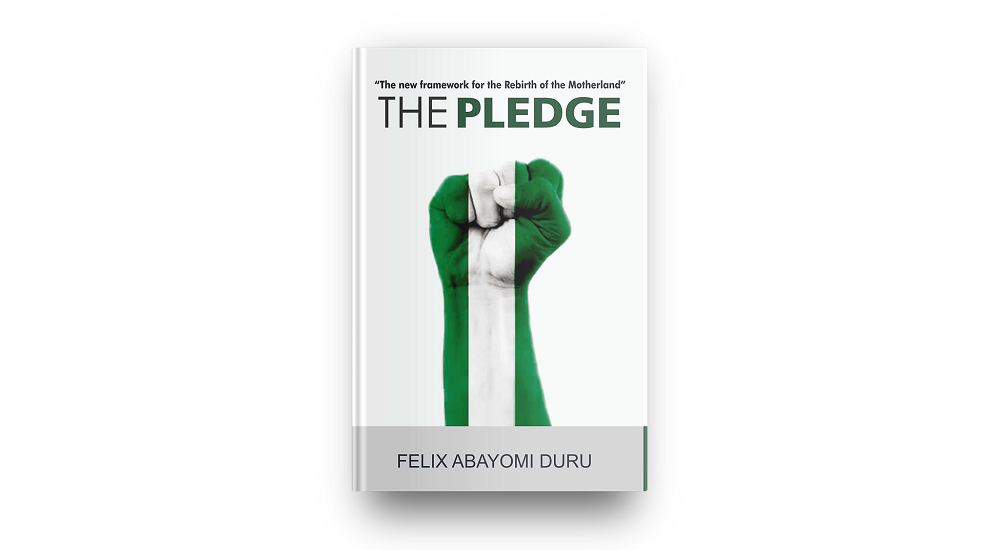TITLE: THE PLEDGE AUTHOR: FELIX ABAYOMI DURU GENRE: NON-FICTION PROSE / INSPIRATIONAL NO. OF PAGES: 66 YEAR OF PUBLICATION: 2020 ISBN: 978-978-986-438-6 PUBLISHER: AUTHORPEDIA PUBLISHERS REVIEWER: EUGENE YAKUBU
Duru’s The Pledge speaks with the urgency of a civil right leader speaking an audience. This is a book by a Nigerian to Nigerians about a reflection on our values as a nation at this critical time Nigeria seems on the verge of tearing apart with insecurity, poverty, disease, lack of unity and social and religious crises. This is a timely effort calling us to reexamine what we stand for as a nation or fall into oblivion and insignificance in global affairs.
With The Pledge, Duru calls our attention to parts of our National Pledge that we might not have been paying attention to, for how could we fall this low as a nation if we had upheld the values that brought Nigeria together. Thus, Duru reminds us that our situation is redeemable and we’ve not totally fallen off the mark for there is still a chance for recuperation as a nation.
Duru believes in coming together to make Nigeria work again. His philosophy of healing and reconstruction is synonymous to that of Mandela when he said about leaving prison that if he had not left behind the hate in the prison, he’d be back in there.
Like visionary leaders, Duru believes what ties us together as a nation is more than what separates us whether from the North or South or East or West.
He preaches in The Pledge that coming together to dialogue and negotiate our past history and plan our future will no doubt lead to the development and make Nigeria a nation worth envying. But before then, The Pledge advises that we have to let go of the bad blood and history of religious crises and bigotry and even the civil war that has been causing the hostility between regions in Nigeria.

In 11 chapters that draw heavily from the Nigerian national pledge, Duru tries to remind us of our humanity and goal and vision as a country. He tries to clean our soiled history and squalor to offer us a new dream and hope. Duru’s book might not show evidence of research with well-grounded inferences backed by accurate data, but it has covered pertinent issues that, if we want to be honest with each other, we know need addressing.
This giant effort by Duru reminds me of the book The Trouble with Nigeria by great Nigerian writer Chinua Achebe where Achebe espouses on key issues slowing down our development and proffering solutions to some of these issues. The Pledge by Duru falls in the same category with this book and I hope and believe every Nigeria will dedicate time to read from this wisdom, as well as foreigners interested in the state of affairs in Nigeria.
Duru has done it for us in clear prose and analytic inferences it is left for us to pick this book and work towards achieving what Duru calls our attention to and key into the visions this good writer has for his country. This is a must-read for Nigerians and for students of politics and history.




